Anne Patrick's Blog, page 2
September 6, 2014
Organization: Revisiting the 500 Club by Randy Ingermanson
The basic concept was that you commit to writing 500 words on your novel every day for the rest of your life.
At first glance, that sounds like too small of a commitment to be useful. 500 words is not a lot. At that rate, it would take 200 days to write a novel of 100,000 words.
But the point is that it isn’t a lot of words. It’s doable. You could do it every day, probably in half an hour to an hour. And once you’ve done 500 words, you’ve greased your inner genius and you just might write another 500 or 1000 or even 2000 extra words.
And that’s significant. Stephen King says in his book On Writing that he writes about 2000 words every day. Which is why he gets so many books written every year.
The 500 Club was a good idea, and I’ve been trying it over the last few months. It works very, very well at ramping up your productivity, but there are some speed bumps I’ve found along the way. Here are some of them:
Speed Bump #1: Travel Craziness
Whenever I travel, my schedule goes right out the window. I find it impossible to work on airplanes, so I’m likely to fail to write on the travel day.
Furthermore, once I get there, my schedule is usually packed from early morning until late at night. This is especially true at writing conferences, where it’s not uncommon for me to be talking with other writers from 7 AM until well after midnight. And if I have a choice between talking to writers and working, I’m going to talk to writers. Yeah, that’s a personal weakness, but it’s the way I’m made.
Since I travel about half a dozen times per year, usually for about a week at a time, I’m going to have giant holes in my writing schedule. I haven’t found any way to beat this. I’m not very disciplined.
My answer to this speed bump is to just plan for it. I plan to NOT write while traveling. I plan to get back in the groove of writing immediately after the trip.
I also have learned to limit my travel to just a few trips per year. This is one reason that I regularly turn down invitations to teach at conferences. Because I can’t do them all and still have time to write.
Speed Bump #2: The Daily Grind
Writing every day, seven days per week, 52 weeks per year, is a grind. After a while, it feels like a routine. It stops being fun.
And writing is supposed to be fun. Writing is a vacation. Writing is pleasure. Writing is a grand escape from life.
If writing stops being fun, then all is lost.
My answer to this is to plan for a weekly break. Normally, this is Sunday for me. That’s my day off from writing. Sometimes I also take Saturday off, when there’s a major project to be done out in the yard. Which is often during the summer.
A weekly break makes writing fresh and new again on Monday morning.
Speed Bump #3: Production is More Than Just Writing
The point of the 500 Club is to keep producing more first-draft copy. First-draft copy is great, but it’s only one step in the chain to getting a book published.
I wear a lot of hats. I publish this e-zine. I have two web sites. I run the software division of a biotech company in San Diego. I own a couple of acres of massively fertile land in a state where it never stops raining and weeds never stop growing.
And I act as publisher for my books, which means I’m in charge of hiring my editor, my proofreader, and my graphic designer. I also format my own books and do the marketing. I’ve got 2 to 3 hours per day that I can work on my novels. Period. There isn’t any more juice to be squeezed out of the lemon.
I’m a one-track mind kind of guy, so when I’m writing the first draft, the 500 Club is brilliant. It keeps me churning out copy every day, and I average thousands of words per day. But I can only do that if I’ve first planned out the novel (using my Snowflake Method, of course). And once the first draft is done, I don’t need new words—I need to edit the old ones. Severely.
The bottom line is that there are a lot of days when writing 500 words would be a bad idea. On those days, I need to be focused on other parts of the production schedule.
My answer to this is to modify the 500 Club to the 30-Minute Club. It’s the same basic idea, but instead of setting a very low quota for words, I set a very low quota for time. I’ll work 30 minutes per day on the next task on the production schedule. That might be Snowflaking, first-drafting, revision, polishing, proofreading, working with my graphic designer, formatting, or marketing.
30 minutes per day is easy. But of course I’m undisciplined and I just can’t stop at 30 minutes, so I’m likely to go on for two or three hours. The point is to make it seem easy so I can get rolling. Then inertia keeps me rolling.
Your Homework
Now how about you? What speed bumps do you have in your writing life? And what can you do to get past those speed bumps so you can keep your writing career rolling as fast as possible?
3) Craft: Planning Your SeriesIn June, I talked about adopting a virtual mentor, Russell Blake. Russell is the author of a number of action/adventure novels, and he’s got a page on his web site that spells out “How to sell loads of books.”
Plenty of people will give you marketing advice, but not all advice is good advice. What I can tell you is that since I decided to do nothing except follow Russell’s advice, my sales have skyrocketed.
The #2 item on Russell’s list is to write a series. Because readers like series. And the smart author gives her target audience what it wants.
Fortunately, I already had a series of books on my backlist, just waiting to be published. In May, I released my City of God series and then in early June (following Russell’s advice) made the first one permanently free on all the major retailers.
It’s done so well that it now makes great sense to continue that series. This was a series that my publisher abandoned mid-stream ten years ago. That was before e-books were popular. That was before permafree was a viable discoverability strategy.
So I’ve been thinking lately about how to plan out a series before you write it. I can’t recall seeing much advice on writing series, and I haven’t done much teaching on the subject myself. So this is fairly new territory for me.
Here are some of my thoughts. I’ll probably add to these in coming months, because I’m working on a new series right now, which means I’ll be thinking intensively about how a series works:
A Series is a Mini-Brand
Many authors HATE the idea of being branded. They don’t want to be typecast for life. A brand is an unspoken contract with your target audience that “this is the kind of novel I write.”
A series gives you all the advantages of branding, but without being typecast to the end of time.
In a series, your contract with your target audience only extends through the end of the series. Once you finish the series, you can go write a different series with a different brand.
The best of both worlds, no?
Story Arc or No Story Arc?
Some series have a story arc and some don’t. Those that have a story arc may have a tightly wired arc or one that’s more loosely bound.
In the epic series The Lord of the Rings, the three books are just one gigantic story broken into three volumes. That’s a very tight story arc.
In the seven-book Harry Potter series, each book stands on its own as a story, with its own beginning, middle, and end. But each book also moves forward the larger story about the quest of Lord Voldemort to achieve total world domination. Every book is essential to that larger story, but you could read any one of the books in isolation and still feel like you read a complete novel. To enjoy the series, you’d need to read them in order.
In Colleen McCullough’s Masters of Rome series, she follows a string of Roman aristocrats in a sweeping historical saga over several decades, covering the lives of Gaius Marius, Cornelius Sulla, Julius Caesar, Cleopatra, and Mark Antony. In principle, this series could go on for hundreds of years, telling a continuous story that focuses on a sequence of characters. The story arc would be pretty thin, because it wouldn’t follow a single character, but you could pick it out.
In the Jack Reacher series, by Lee Child, each book stands on its own, with no real need for any of the others. There’s some continuity between the various novels. But you could read the books in pretty much any order, because there’s no larger story. You could remove any of the novels and the others would still make exactly the same sense. Reacher just wanders from place to place, having adventures that aren’t related in any way.
Your series can have a story arc if you want, but you aren’t required to have one. You just need to decide up front what you want to do.
Character Growth or No Character Growth?
Most novels have a character who grows or changes in some way.
In The Lord of the Rings, the hobbits learn that they are powerful. Frodo grows so much that in the end he’s too big for Middle Earth. Sam grows from a simpleton gardener boy into a brave and moderately wise hobbit who serves as mayor. His carefree friends Pippin and Merrie also grow into bold, adventurous hobbits, able to lead their people in battle.
In The Harry Potter series, Harry, Ron, Hermione, and their friends grow into adulthood, always taking on tasks a bit beyond their range. Ultimately, they emerge as powerful young wizards and witches, able to stand up to Lord Voldemort. That’s some serious growth.
In the Jack Reacher series, Reacher doesn’t really change at all. He’s a wandering vagabond with no responsibilities at the beginning of the series, and he’s the same wandering vagabond all the way through.
Should you have your characters grow in your series, or shouldn’t you?
If you’re writing a short series, you’ve got room for your characters to grow. As the series gets longer, there’s less and less room, especially if they’re adults. With teen characters, you’ve got more latitude to grow them, but eventually, they’re going to have to become adults and then you’re going to run out of space for growth. This is why YA series can be longer and still show characters constantly growing.
If you’re writing a really long series, (common for mystery and adventure writers), then it probably makes sense to have little or no character growth. Your lead character may age, but she doesn’t change emotionally or psychologically.
This is something you should decide in advance. If you start your series with your characters growing in each of the first few novels, you may run out of room for them to grow, which will force you to make some changes in mid-series. Either you’ll have to add new characters (who can grow in the later books) or you’ll need to transition to stories in which your characters don’t mature any more.
Are you working on a series right now? What’s the mini-brand for this series? Do you know the overall story arc for the series (if any)? Have you made a decision on whether your characters will show growth in each novel?
I expect we’ll return to this subject in coming months, as I think harder about what makes a series tick.
This article is reprinted by permission of the author.
Award-winning novelist Randy Ingermanson, "the Snowflake Guy," publishes the free monthly Advanced Fiction Writing E-zine, with more than 9,000 readers. If you want to learn the craft and marketing of fiction, AND make your writing more valuable to editors, AND have FUN doing it, visit www.AdvancedFictionWriting.com.
July 22, 2014
OUT OF AGONY, Book #4 in the Starting Over Series, by Author Lynette Endicott
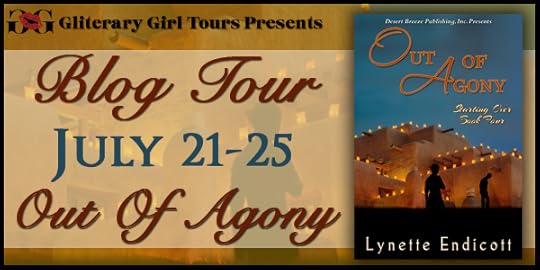
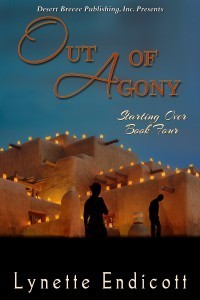 Brian Van Pelt has barely survived an anguished year of loss, hiding his sorrows under the facade of a cool and uncaring attorney. Not able to deny his grief any long, heartache drives him to collapse and his life takes an unexpected turn.
Brian Van Pelt has barely survived an anguished year of loss, hiding his sorrows under the facade of a cool and uncaring attorney. Not able to deny his grief any long, heartache drives him to collapse and his life takes an unexpected turn.When Jessie Ingram comes to work at his law firm, she is intrigued by the conflicting darkness of Brian's behavior and the tender inconsistencies that hint at something deeper within him.
Despite her interest, she has her own pain, supporting her niece Sara, who has a virulent cancer with aggressive treatments that take such a toll they would not be worth it — except they are Sara's only hope of survival.
Will life’s hardships bring Brian and Jessie together? Will they be able to heal and possibly find love?
BUY NOW AT:Amazon | Barnes and Nobles | Desert Breeze Publishing
ABOUT Lynette Endicott
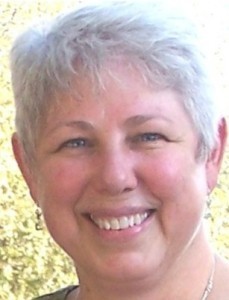 Lynette Endicott grew up in Illinois, met her husband in Western Nebraska, lived 25 years in Kansas where their daughter was born, and has been in Fresno, California since 2000. She has a son-in-law (who lives with her daughter nearby), and has rescued a dog, a bird and three cats. She and Ollie, her terrier mix, volunteer as a team at the local library, where children read to the dog.
Lynette Endicott grew up in Illinois, met her husband in Western Nebraska, lived 25 years in Kansas where their daughter was born, and has been in Fresno, California since 2000. She has a son-in-law (who lives with her daughter nearby), and has rescued a dog, a bird and three cats. She and Ollie, her terrier mix, volunteer as a team at the local library, where children read to the dog.At a youth camp when she was 14 the editor and teacher of a writing class challenged her to submit something to his youth magazine. She did and it was the first of 10 articles and stories accepted by the publication over the next few years.
Nothing like front end success to keep her writing! Lynette enjoys reading contemporary romance and speculative fiction and writes both. Her debut book, Starting Over Book One: More Than A Job, and two more books in that series, The Return of Joy and Finding Her Voice are available now. The first three of the Time After Time Saga with Tami Dee are available now, including Animal Instinct, Survival Instinct and Pioneer Instinct. The fourth in the series of six, Protective Instinct, will release in August 2014.
Because she didn't have pets until after her 50th birthday the animals she enjoys find their way into all her books. Usually you will also find a character with a disability as part of the day-to-day fabric of the story. In More Than A Job, Paige works in services to people with disabilities until she loses her job and starts over. In The Return of Joy, Atlas, the yellow lab, becomes a Therapy Dog. In the Time After Time series animal helpers assist the hero and heroine in all six of the books in the series.Lynette loves hearing from her fans! Please connect with her on: Facebook| Twitter | Website | Goodreads | Pinterest
To celebrate the release of OUT OF AGONY, Lynette will be giving away a $20.00 Amazon Gift Card to one grand prize winner, a $10.00 Gift Card to either Starbucks or Teavana to the second runner up and an ecopy of OUT OF AGONY to the third runner up. Enter the giveaway every day for more chances to win. All entries must be received by July 25th before midnight. Monday, July 21st Agapa Reads
a Rafflecopter giveaway
July 18, 2014
Writing Tips - Organization, Craft, and Marketing by the Snowflake Guy
Award-winning novelist Randy Ingermanson, "the Snowflake Guy," publishes the free monthly Advanced Fiction Writing E-zine, with more than 9,000 readers. If you want to learn the craft and marketing of fiction, AND make your writing more valuable to editors, AND have FUN doing it, visit www.AdvancedFictionWriting.com.
Organization: You Don't Know What You Don't KnowWhether you’re an indie author or you’re pursuing the traditional publishing path, you have to make some key decisions about how much help you need.
One of those decisions is the question of whether to use a proofreader.
This decision is a little different, depending on which road you take to publication. So let’s look at your two major options:
Traditional Publishing
If you’re submitting your work to traditional publishers, then whatever you submit needs to be as good as you can make it. That means no spelling errors. No grammatical errors. No punctuation errors.
Some writers think that a publisher ought to make allowances for a few typos, because after all, they have proofreaders, right?
Yes, they do, but it just looks lame if you submit a proposal or manuscript riddled with a zillion typos. It cuts your odds of getting accepted, and your odds were already long.
Proofreading is not your agent’s job. Your agent will probably help you polish the content of your proposal and will probably point out craft issues with your sample chapters. But it’s just not your agent’s job to proofread your work. It’s your job.
Either you’re good at proofreading or you’re not. If you are, then do it yourself and make it perfect. If you’re not, then you should hire somebody.
What if you’re not sure?
In that case, I’d strongly suggest you hire somebody.
The reason is because you don’t know what you don’t know. And you can’t see what you can’t see.
You might think that the phrase you want is “one in the same,” when it’s actually “one and the same.” You might think the word you want is spelled “discrete” when the word you mean is actually spelled “discreet.” You might know that the possessive of “it” is “its” but even so, your fingers might type “it’s”—and once you’ve done that, your eyes may skim right past it because it looks so right.
And spell check won’t catch any of these errors.
Indie Publishing
If you’re an indie author, this becomes doubly true, because now you’re the publisher. A traditional publisher would hire at least one proofreader, probably more, to review your manuscript after typesetting. They would also send it to you for review.
When you’re the publisher, it’s your job to make sure the proofreading gets done.
I know many indie authors who say this isn’t necessary. They use beta readers. Or they do all the proofreading themselves.
It’s a rare beta reader who’s qualified to do a professional level of proofreading. It’s a fairly rare author who’s qualified.
I’m very good at spelling and I’m fairly good at grammar and punctuation. So it’s a real temptation for me to do this myself.
But I don’t, for a couple of reasons.
First, I’m a perfectionist. I want my books to be as good as possible. Even one typo is unacceptable to me.
Second, my eyes just aren’t good enough anymore. The retina in my right eye has a small bubble under it, which means that everything that eye sees is slightly out of focus. My left eye is fine, but my brain has to put together the very different images from my two eyes and make sense of it. And sometimes, it just doesn’t see what’s there. This is very frustrating, but it’s my reality.
I’ve been working on a new indie book on the Snowflake method, which I’ll be releasing soon. I edited it as well as I could.
Then I hired an experienced freelance editor to give me a high-level revision letter. She gave me several suggestions that were “obvious,” but which I had somehow missed.
Then I worked the manuscript over another couple of times. Then I proofread it one last time, until it was absolutely perfect in my eyes.
Then I hired an experienced proofreader, who caught an embarrassing number of mistakes.
You don’t know what you don’t know. You can’t see what you can’t see.
I know an indie author who uses beta readers to do his proofreading. When he released one of his books, I bought it on launch day and read it right away. Good thing I did.
Midway into the book, I discovered one of those embarrassing spelling errors that you hope never to make in public.
I emailed the author right away and he fixed it. But it could have caused a bit of backlash from his readers.
I know other authors, both traditional and indie, who believe they are much better at proofreading than they actually are. But even my eyes, fallible as they are, can see problems in their work. And if I can see lots of problems, then there are probably many more.
I’ll say it again, because it’s worth repeating.
Ewe donut no watt ewe donut no. Yew cant sea wot yew cant sea.
The above paragraph passes spell check. But every word is a typo.
My opinion is that hiring a proofreader is just a standard cost of doing business as a writer.
Craft: You Are What You Read?Years ago I was talking to a fellow novelist whom I’d just met and I asked him what his Top Five favorite novels were.
This is a question I ask writers a lot. I’m always looking for great books, and one place to find them is on the Top Five list of another writer.
This guy’s answer just about knocked me over. He said, “I don’t read fiction.”
I couldn’t believe it. I asked him if he meant he didn’t read much fiction.
No, he didn’t read any. He was a nonfiction kind of a guy.
He wrote fiction, but he didn’t read it.
That was years ago, and I haven’t seen anything from him recently.
To put it bluntly, I don’t see that as a recipe for success. If you’re a novelist, you need to be reading fiction.
There’s a saying that “you are what you read,” and I think this is partially true.
If you read great fiction, you’ll absorb some of it, and you’ll become a better writer. You’ll learn what’s possible to do in writing, and it can’t help but expand you as a writer.
But I think it goes beyond that. I recommend reading widely, even if it isn’t great fiction. Because the fact is that you are MORE than what you read. What you read is fuel for your mind—it’s necessary, but it’s not sufficient.
Novelists need to be reading fiction. A lot of fiction. Not just the bestsellers. Obscure stuff. Good fiction. Great fiction. Horrible fiction (not too much of this—if you do manuscript reviews at a writing conference, you’ll see more than you need).
When you read other people’s fiction, you learn things that you couldn’t learn any other way. Because when it comes to the craft of writing, you don’t know what you don’t know. The only way to learn what you don’t know is by reading other people’s work.
For starters, you should read widely in your category. You need to know the rules of your genre—which ones are ironclad and which ones can be bent.
But that’s not enough.
Read widely outside your genre. Read outside your demographic. Read outside your worldview.
Read romance fiction. Most novels have a romance thread in them, no matter what their category. If you can improve that thread, your story will improve.
Read suspense fiction. Most novels have some element of fear in them. Learn how to do that better and your novel will be better.
Read fantasy. Even if you, personally, would never want to read a vampire or werewolf story, it’s quite possible that one of your characters would. If you understand that character better, then you’ll do a better job writing that character.
Read mysteries. Even if you hate mysteries. Most novels have an element of mystery to them—some secret that needs to be uncovered. If you know how to unwrap that secret, one layer at a time, then your story can only get better.
Read a spy novel. One of your characters is reading a spy novel right now. Do you know what he likes about it?
Read a historical novel. The better you understand history, the better you understand the present.
Read science fiction. You might learn a bit of science, if it’s a hard science fiction novel. But for sure, you’ll expand your universe a bit. Never hurts.
Read YA fiction. It’ll give you insights into your younger characters. It might give you some insights into a few young adults in your life.
Read women’s fiction. If you’re a guy, you’ll understand women better, which is good all by itself. If you’re a guy writing fiction, you’ll understand your readers better, because the odds are that the majority of your readers are women.
Read fiction that features characters with wildly different beliefs than yours. I understand hyper-capitalists better after reading Ayn Rand. I understand Jews better after reading Chaim Potok. I understand Wiccans better after reading S.M. Stirling’s apocalyptic series that begins with Dies the Fire. I understand Muslims better after reading Khaled Hosseini’s book The Kite Runner. I understand fundamentalists better after reading the first book in the Left Behind series.
The better you understand your characters, the better your novel will be.
Read bad fiction. Yes, really. If you find a particularly bad piece of writing, read it all the way to the end. Figure out why it’s so awful. Resolve never to do the things that the author is doing.
I confess that I have a favorite bad novel, written by a high-school kid who graduated a couple of years behind me. This thing is fearsomely, wonderfully, amazingly awful. It’s bad on every possible level.
No, I won’t tell you the title. Find your own dreck. I’m keeping mine a secret. My family knows which book I’m talking about, and they’ve all read it. We sometimes quote particularly horrible lines at the dinner table.
There are a billion ways to write great fiction, but only about a dozen ways to write truly horrible fiction. Good writing starts by learning to avoid that dirty dozen of Desperately Horrible Writing Follies.
If you’ve read some really awful fiction, I guarantee it’ll improve your writing. But there’s such a thing as too much of a bad thing, so stop when you’re had enough. A little goes a long way.
Read a little bad fiction and a ton of good fiction.
Reading fiction is the foundation of writing fiction. Make your foundation broad and strong.
Marketing: Every Writer Needs a MastermindThe more I see of how successful authors work, the more I think that it’s imperative to be part of a community of writers.
You might think that once you get published, all the other authors out there are your competition, and you ought to do your best to avoid giving them one speck of help.
But that’s not what seems to work. Over and over, I see successful authors banding together into small and large groups to help each other figure things out.
Small groups of five to ten people are often called Mastermind groups, but in my opinion, even a large community of a few hundred can function as a Mastermind, if it’s run well.
You can think of it as “you scratch my back and I’ll scratch yours” if you want to. That’s kind of a self-centered approach to life, and I think it misses the point. It’s fun to help others. It’s fun to hang out with similar people. And it’s way cool that doing good leads to doing well.
Based on what I’ve seen, I’d say that you’re much more likely to do well in marketing your work if you spend some time and effort helping other authors.
I belong to several small and medium size groups of writers on Facebook. Last month when I was trying to get my novel TRANSGRESSION permafree on Amazon, I ran into several glitches. I posted some questions on a couple of these groups and got help within minutes.
One of my small Facebook groups has been terrific in helping me evaluate cover designs. I’m not great at understanding what makes a good cover, but I can post several concepts that my graphic designer gives me and get feedback on what works, what doesn’t, and which direction to go next. This is huge for me.
Of course, in turn, I give a lot of techie advice on formatting and marketing to my Facebook groups. I have expertise in those areas.
In marketing, 1 + 1 = 10. So if you help a friend, and they help you, then you both wind up massively ahead.
If you’re trying to market your work and you’re not making much progress, then the very first thing I’d recommend is to join forces with other writers similar to you.
There’s power in numbers. There’s wisdom in a group.
And yes, you need to be wary of those annoying people who think that tearing down others is the quickest way up the ladder. You also have to be wary of the people who believe they know more than they actually do.
But I’d say the benefits of a group far outweigh the hazards. Successful authors hang out with other successful authors. Success breeds success. It just does.
The key thing is to find authors similar to you. Similar in category. Similar in outlook. Similar in level of success. They can’t all be identical to you, but general similarity with a bit of diversity seems to be the best.
July 12, 2014
Book Giveaway - Malice
Settling into her new life in Oregon and expecting her first child, FBI profiler Jo McDaniels' serenity is shattered when her old boss turns up with some devastating news. The serial killer who managed to elude them in Maine has resurfaced.
Harland Briggs is every sadistic monster Jo has profiled rolled into one. Leaving his hunting grounds in Maine, he's making his way across country leaving a path of destruction in his wake.
After learning that in the past three years an alarming number of teenage girls had been abducted across the country, Jo goes against her husband's wishes and agrees to go after Briggs. Once again, her sanity, as well as her life, is in jeopardy…and the life of her unborn child.
.goodreadsGiveawayWidget { color: #555; font-family: georgia, serif; font-weight: normal; text-align: left; font-size: 14px;
font-style: normal; background: white; }
.goodreadsGiveawayWidget img { padding: 0 !important; margin: 0 !important; }
.goodreadsGiveawayWidget a { padding: 0 !important; margin: 0; color: #660; text-decoration: none; }
.goodreadsGiveawayWidget a:visted { color: #660; text-decoration: none; }
.goodreadsGiveawayWidget a:hover { color: #660; text-decoration: underline !important; }
.goodreadsGiveawayWidget p { margin: 0 0 .5em !important; padding: 0; }
.goodreadsGiveawayWidgetEnterLink { display: block; width: 150px; margin: 10px auto 0 !important; padding: 0px 5px !important;
text-align: center; line-height: 1.8em; color: #222; font-size: 14px; font-weight: bold;
border: 1px solid #6A6454; border-radius: 5px; font-family:arial,verdana,helvetica,sans-serif;
background-image:url(https://www.goodreads.com/images/layo... background-repeat: repeat-x; background-color:#BBB596;
outline: 0; white-space: nowrap;
}
.goodreadsGiveawayWidgetEnterLink:hover { background-image:url(https://www.goodreads.com/images/layo...
color: black; text-decoration: none; cursor: pointer;
}
Goodreads Book Giveaway
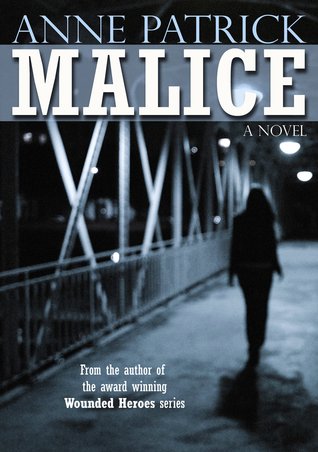
Malice by Anne Patrick
Giveaway ends August 08, 2014.
See the giveaway details at Goodreads.
Enter to win
July 8, 2014
Claimed the first book in the Hunter’s Moon Series and Giveaway by P. J. O’Dwyer
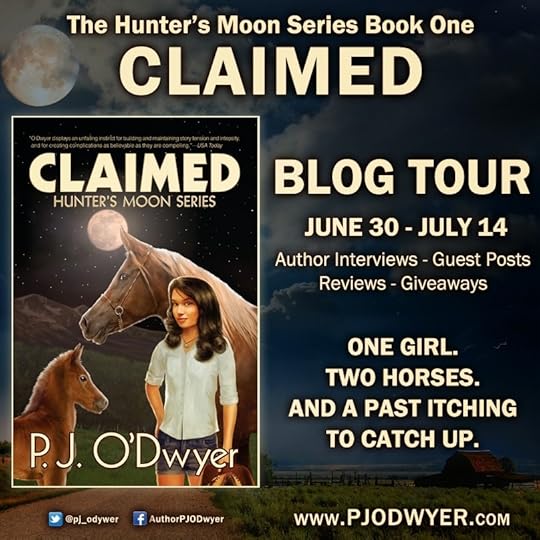 “O’Dwyer displays an unfailing instinct for building and maintaining story tension and intensity, and for creating complications as believable as they are compelling.”
“O’Dwyer displays an unfailing instinct for building and maintaining story tension and intensity, and for creating complications as believable as they are compelling.”—USA Today
One girl. Two horses. And a past itching to catch up. . . .

Fourteen-year-old, Colorado juvenile delinquent Mackenzie Lynn Stonebreaker doesn’t do horses. But the volunteer gig at Hunter’s Moon Ranch has its perks. With cold, hard cash she lifts from its boarding fund, Mac’s poised for escape to search for her birth mom when an Arabian mare named Bella is viciously struck by a shotgun blast. Alive and talking—well, telepathically only to Mac—the horse begs for her help.
Talking to horses totally freaks Mac out. But leaving Bella and her colt Raider isn’t an option. Ditching her plans for now, Mac becomes a modern-day Dr. Doolittle, looking for justice. Only Mac tends to act first and ask questions later. When her protective instinct for the horses gets in the way of her good sense, Mac finds herself, once again, on the other side of the law.
Dodging a return trip to juvie, thanks to the ranch owner’s partner Dr. Rachel Hunter, Mac is now in the pediatrician’s custody and living a life she could only dream. With newfound friendships, the gift of gab with two quirky horses, her first kiss, and a chance at that family she’s always wanted, she can’t quite let go of one thing.
Abandoned and unloved by her mother, Mac wants to know why. But sleuthing for answers puts Mac on a collision course with the past—one that will shatter everything she believes in about herself and those she’s come to love and trust at Hunter’s Moon.
Mac just may find that what she’s been looking for her whole life is the exact opposite of what she will get.
Excerpt from claimed “Bella.” Mac slipped through the stall door and hugged her tight, avoiding her IV. “I missed you.” Mac kissed her muzzle and stroked her face. The scratch between her eyes was barely noticeable, but the angry sutures on the right side of her jaw remained jagged. If Mac had hoped by some miracle Bella would emerge unscathed, she better think again.Mac checked her water. Particles of food floated on top, and she unsnapped the bucket from the screw eye. “I’ll be right back.” She slipped out from the stall and went over to the concrete sink and dumped out the old water.Put a bullet in her head—it’s a lot cheaper.Kai’s heartless voice played in her head over and over again. Mac made a face and slammed on the faucet. Cold water splashed her in the eye, and she dropped the bucket in the sink, grabbing the edge of it. “Jerk.”“That’s real nice. Haven’t seen you in four days . . .”Mac spun around, the heat creeping into her cheeks. “I-I didn’t mean you. I meant that bonehead Kai Montgomery.” “Yeah, Gil told me.” Cade sauntered over, his totally cool, shaggy brown hair partially covering his tough-guy face. “Called him something else though.” He grabbed the bucket, rinsed it, and filled it with water from the tap. “This for Bella?”Mac nodded, all the while her mind going back to two words—“four days.” He’d actually counted them.Cade dipped his head. “Hello?”“Ah, yeah, it’s for Bella.”He motioned for her to go ahead of him. “So you’re staying then?”Mac shrugged. “That’s the deal.” Now that she was in the aisle, she waited for him to catch up. “Bella still has her IV?”“Yep. Doc says another day or two, and he’ll remove it.”“How’s Raider doing without his mama?”“A total brat.” He laughed. “Thanks for leaving me and Troy to pick up the slack. Guess who had to milk her dry and bottle-feed the beast while you were gone?”Gil must have pawned it off on them. She would have done it. Mac swung on him. “I-I didn’t have a choice. They wouldn’t let—”“Relax. I’m kidding.”“Oh. Sorry.” That was the old Mac. Defensive—about everything. Mac opened the stall door, holding it for Cade, and couldn’t help but laugh at herself and the image of Cade milking Bella.He snapped Bella’s water bucket to the screw eye. “What’s so funny?”“You.” Mac angled her head down toward Bella’s stomach. “I get milking cows. Not so sure about a horse.”“Yeah, well, it wasn’t enjoyable for either one of us.” She could tell he wanted to laugh. The corners of his mouth were that close to turning up.“Hey, I’ve been looking for you two.” Troy stood outside the stall. “Gil needs us to pick up some supplies at Hyrup’s.”Cade frowned at Mac and then turned to Troy. “Guess the girls can’t come.”Troy laughed. “No, man. Gil’s cool. Caroline’s already in the truck.”“Cool. Let me grab my Stetson, and I’ll meet you at the truck.”Troy sauntered out of the barn, and Cade leveled a curious gaze at Mac.“What?”“Didn’t you say your grandparents live in Glenwood Springs?”“Yeah.”“Got an address?”Mac nodded. “Yeah. Why?”“The supply store is near Glenwood Springs. Wouldn’t take us long to pick up supplies. We could swing by after.”Planning and doing were two totally different things. She wasn’t ready to see them—confront them. “What if they’re not home? They could be out and taking one of those stupid classes that old—”“You’re afraid.”“Am not. It’s just they won’t be home.”He gave her his back and sauntered out just like Troy—all full of himself. “Afraid,” he called back.Mac bit down on her lip. She wasn’t afraid. They weren’t worth being afraid over. They’d done this to her—not the other way around. Mac ran down the aisle after him. “I’m not afraid. And you’re the one being a jerk now.”“Prove it.”“That you’re a jerk?”He chuckled. “No. That you’re not afraid to tell your grandparents off.”Mac breathed deeply through her nose. “Fine. I need to run up and get their address. I’ll meet you at the truck.” Mac took off toward the cabin and climbed the stone steps. Miss Rachel stepped out from around the corner of the wraparound porch and her pediatrician’s office on that side of the cabin. “Hey, Mac, where you going in such a hurry?”“Ah . . . bathroom, then me and Caroline are going with Troy and Cade to the supply store. Gil said we could go.”She walked toward Mac in jeans, cowboy boots, and her doctor’s coat. “That’s great, sweetie.” She nodded toward the steps. “I have a few house calls to make and a class I’m taking so I can understand all these new health insurance forms.” She rolled her eyes.Mac laughed. Miss Rachel’s arm remained around Mac’s shoulders, comforting and warm. She was so not like any other foster mother she had over the years, and truthfully, she couldn’t wait to spend her first night at the cabin. “What time will you be home?”“About ten. I’ve got a roast in the Crock-Pot for you and Caroline.” Her arm fell away. “I’ll see you tonight.”“Bye.”Miss Rachel traveled down the grassy hill, using the stepping stones, and said something to Gil who had come from the barn. Gil remained at Cade’s truck while Miss Rachel hopped in hers and headed out.Mac darted in the house and grabbed the paper from her backpack, shoving it in her jean pocket. She met her friends at Cade’s truck in time to catch Gil’s speech.“No detours,” he called out in a deep, gruff voice, his dark brows bunching together over his sharp nose.Uh, oh.Mac’s stomach dipped—and not like the first hill of a killer rollercoaster.
Author Bio –
 P. J. O’Dwyer is an award-winning author of young adult and romantic suspense. She’s an active member of Romance Writers of America. When asked where she gets her story ideas, she laughs ruefully and says, “It helps being married to a cop.” She lives in Maryland with her family.
P. J. O’Dwyer is an award-winning author of young adult and romantic suspense. She’s an active member of Romance Writers of America. When asked where she gets her story ideas, she laughs ruefully and says, “It helps being married to a cop.” She lives in Maryland with her family.Connect with P. J. Website Facebook Twitter LinkedIn
Giveaway:
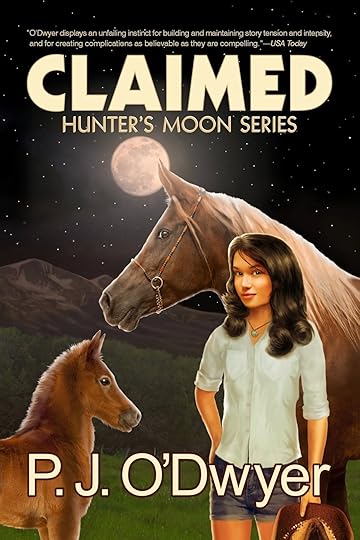 KINDLE EBOOK
KINDLE EBOOK 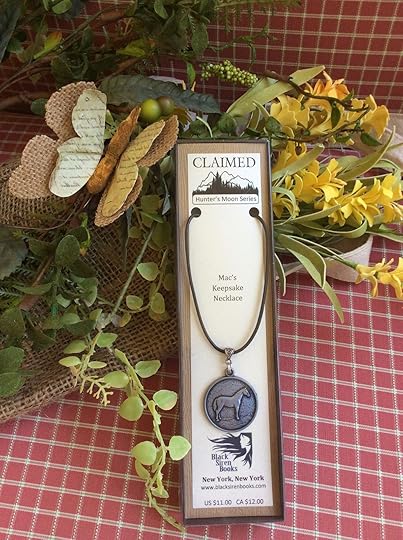 Keepsake Necklace Inspired
Keepsake Necklace Inspired by Heroine Mac Stonebreaker
a Rafflecopter giveaway
June 27, 2014
The Praise for the Teen in Your Life Contest!
Here’s a chance to tell us great things about the ones you know. They can be your child, grandchild, niece, nephew, cousin or friend.
Every month a gift will be given to the best entry, but everyone’s a winner because the best prize is getting to share about the wonderful young people in your lives.
The rules are simple. Tell us how you know the teen you’re honoring and address the topic given for the month.
Get your thinking caps on. Here’s the first topic: Tell us something or some great things about the teen you want to honor.
First Prize: A stitchable journal and an e-book of Stopped Cold.

Place: The Book Club Network. Be sure to leave your comments there in the Discussion Forum.
To kick us off here are some great things about Margaret McWhorter, the heroine in Stopped Cold.
Margaret McWhorter, the fourteen-year-old in Stopped Cold, believes in God and turns to Him in a tragic situation. She's devastated when someone sells her brother a steroid, and he ends up in the hospital. Acting in a responsible way to fend for herself while her parents spend long hours with him, she works hard to make good grades. She yearns to do something for her brother. She and her two friends hunt for the dealers who sold him the drug. She also works hard to please her dad with her swimming capability, hoping to bring a little joy into their lives. At the same time, she sees that using the gift or gifts God gave her is more important than winning.
See you in The Teen Room!
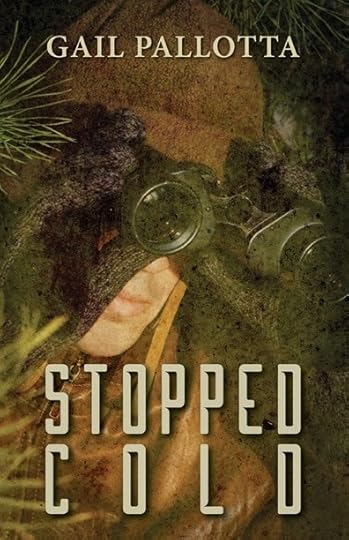
*Stopped Cold finished fourth in the 16th Annual Preditors and Editors Readers Poll and was a Grace Awards Finalist.
About Stopped Cold: The theme - We don't have to be number one for God to love us.
Things aren’t what they seem in peaceful Mistville, North Carolina.
Margaret McWhorter enjoys a laid-back Freshman year in high school flirting with Jimmy Willmore, swimming and hanging out with friends—until that day. Her brother, Sean, suffers a stroke from taking a steroid. Now he’s lying unconscious in a hospital. Margaret’s angry at her dad for pushing Sean to be a great quarterback, but a fire of hatred burns inside her to make the criminals pay.
Looking for justice, she takes Jimmy and her best friend, Emily, through a twisted, drug-filled sub-culture. A clue sends them deep into the woods behind the school where they overhear drug dealers discuss Sean.
Time and time again they walk a treacherous path and come face to face with danger. Even the cop on the case can’t stop them from investigating. All the while Margaret really wants to cure Sean, heal the hate inside, and open her heart to love.

June 5, 2014
New Release - Malice (Sequel to Ties That Bind)
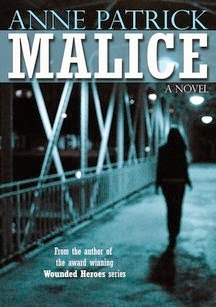 Settling into her new life in Oregon and expecting her first child, FBI profiler Jo McDaniels' serenity is shattered when her old boss turns up with some devastating news. The serial killer who managed to elude them in Maine has resurfaced.
Settling into her new life in Oregon and expecting her first child, FBI profiler Jo McDaniels' serenity is shattered when her old boss turns up with some devastating news. The serial killer who managed to elude them in Maine has resurfaced. Harland Briggs is every sadistic monster Jo has profiled rolled into one. Leaving his hunting grounds in Maine, he's making his way across country leaving a path of destruction in his wake.
After learning that in the past three years an alarming number of teenage girls had been abducted across the country, Jo goes against her husband's wishes and agrees to go after Briggs. Once again, her sanity, as well as her life, is in jeopardy…and the life of her unborn child.
Now available in print or eBook on Amazon!
EXCERPT:Jo fixed a pitcher of lemonade and they went into the living room. "So what brings you to Oregon?" She motioned to the sectional sofa.He waited as she eased herself onto the cushions before joining her. "Just in the neighborhood and thought I'd stop in and see how Portland's finest new agent is doing.""Save your mendacities for someone that doesn't know how much you hate to fly." She arched an eyebrow at him. "Now what gives?"Isaac shifted beside her then slowly reached into his suit jacket. "These came into my office two days ago." He handed her a white envelope.Jo took it and opened it. They were newspaper clippings. The first was from the Washington Post, an article done on her shortly after the news of her marriage got out.She read the caption, AGENT FINDS LOVE IN THE MIDST OF MADNESS. Glancing over the story, which followed it, it went on to describe her as the FBI's Prima Donna of Profiling, giving mention of a unique talent, which helped her to track serial killers.Attached to the article was a clipping from another newspaper, this one unidentified and undated. THIRD LOCAL TEENAGER REPORTED MISSING, POLICE FEAR SERIAL KILLER."The envelope has a Minneapolis postmark but we weren't able to get any decent prints from it. We assume the parents of one of the missing teens sent them. We tracked the story to a small community outside of Minneapolis. Kerry Rhoads, age fifteen was first reported missing three weeks ago. One week later, Lauren Shipley, same age, disappeared while walking home from school. Last week, Roberta Mitchell, age fourteen, failed to return home from school.""Any leads?""Only one and you're not going to like it.""Why is that?""Does Louke, Minnesota ring any bells?"Her eyes widened in recognition. "Harland Briggs was born and raised there before moving to Maine.""Now you know why I'm here."As if sensing her fear, the baby stirred within her, prompting her to stand. Stunned by the news, Jo began to pace the room. She thought back to the case that continued to haunt her almost three years later. Detective Harland Briggs had abducted, raped, tortured then buried alive twelve little girls ranging in ages of eight to thirteen years old, and through a horrible miscarriage of justice, had managed to get away with it."In the past three years there have been an alarming number of teenage girls abducted across the country, but never more than one in a certain area. We've no idea how many he's connected to, or if he's even involved.""Oh it's him all right," she said softly, "I can feel it.""Yeah, me too." His dark eyes revealed the torment he too had gone through on the case. "The Director has authorized me to put together a taskforce from our Washington and Quantico field offices…""I want Lindsey Hammond. She's the best lab tech I know.""I'll get her." He stood, placing his hand on her shoulder. "You don't have to do this, Jo. I only came here to run it past you and I'd never have done that had I known you were pregnant.""I need to finish this, Isaac, not only for myself but for the families of his victims. We need closure.""Most people think the killer died in prison.""But we both know that's not true.""How long before you can leave for Minnesota?""I have a doctor's appointment in the morning for a sonogram. We can leave after that.""I'll call your supervisor then book our flight. I don't imagine your husband is going to like this much." She gave a heavy sigh. "No, I don't suppose he will."
April 30, 2014
GIVEAWAY!
https://www.goodreads.com/book/show/2...
March 8, 2014
Kill Shot Giveaway
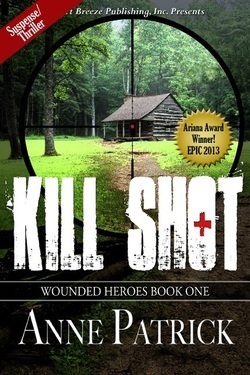 Former combat medic Kory Wagner survived four war zones. Now she's home and out of the army for good and someone is trying to kill her in her own backyard. Just as disturbing is the handsome sheriff who's on the case.
Former combat medic Kory Wagner survived four war zones. Now she's home and out of the army for good and someone is trying to kill her in her own backyard. Just as disturbing is the handsome sheriff who's on the case.Sheriff Sean Harding doesn't quite know what to think of the decorated veteran that managed to outsmart an entire search party. What bothers him more is the body of the PI, whom she hired to find her sister's killer, was found dead in a building Kory owns. And Kory isn't being very cooperative with helping him find the answers as to why someone would kill her sister and want her dead. Will he be able to keep her alive long enough to discover the truth?
*Kill Shot was a finalist in the 2011 Grace Awards in the Suspense/Mystery/Thriller/Romantic Suspense category. *Best seller at Amazon & Christianbook.com. *Nominated for a CAPA award for 'Best Romantic Suspense' at TRS.
Available at Desert Breeze Publishing, Christianbook.com, Amazon.com , Barnes & Noble, and most online bookstores.
February 22, 2014
First review of Secrets
ReviewedWounded Heroes Book Four: Secrets yay!! it continuesFebruary 22, 2014
Love love love this series can't get enough of the characters and their lives that feel so real, like I'm in their lives. This particular story is about love, bravery, second chances, romance, and grudges held for too long in secret that leads to no good. I highly recommend this book to any and all, even if your not a fan of suspense or chick flicks there is something in this book that all will enjoy and relate to. Can't wait for august when the fifth book comes out!!!! Vengeance!!!



